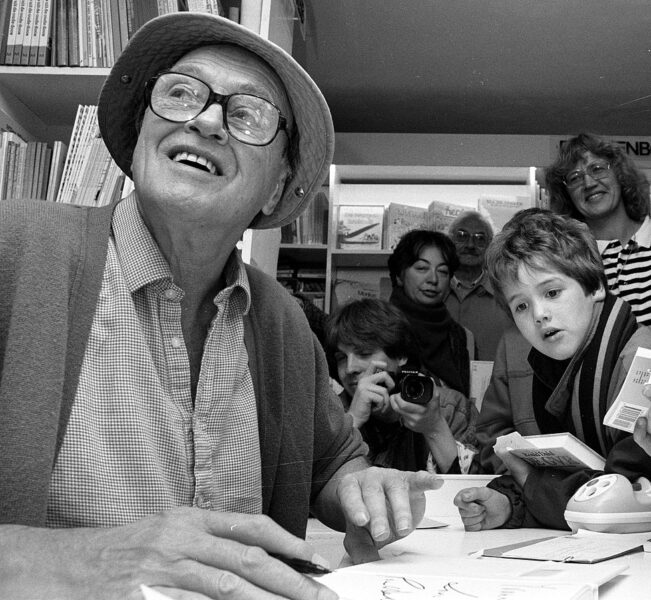
As Roald Dahl day on 13th September draws closer, the beloved children’s author has found himself at the posthumous centre of a debate on how best to navigate the aging of language. As the boundaries of what is deemed socially acceptable have shifted, Dahl (whose published work began with James and the Giant Peach in 1961), has increasingly become dated. It’s a tough pill to swallow, especially for those of us who grew absorbed in Dahl’s worlds- but what as a child seemed dark, humourous and creative, upon modern inspection just feels like bigotry.
…what as a child seemed dark, humourous and creative, upon modern inspection just feels like bigotry.
The debate really took off in 2023, when the publisher Puffin working with the Roald Dahl Story Company who own the rights to Dahl’s books, announced changes to future editions of his children’s book in order to remove language deemed offensive. The altering of passages relating to race, gender and weight rebranded characters such as Augustus Gloop and the Witches to smooth over Dahl’s prejudices. The changes inspired intense backlash from everyone from Salmon Rushdie to Rishi Sunak accusing Puffin of “censorship”.
The changes themselves are actually fairly innocuous, such as describing the Oompa-Loompas as “small people” rather than “titchy”, or introducing gender neutral language. They hardly affect the story, or children’s enjoyment of it. In fact, seeing as Dahl was very much “of his time”, in that lots of his world demonstrates misogynist and colonial attitudes, more modern interpretations may be easier for children to understand and relate to. Whilst adults are able to understand that work is reflective of social attitudes of the time, children can’t always understand this complexity. Racism, sexism and fatphobia run through Dahl’s works in a that is difficult for parents to explain away, but easy for young children to absorb and adopt into their own worldview.
Racism, sexism and fatphobia run through Dahl’s works
However, even if you peel away the layers of bigotry, Dahl’s books are certainly entertaining but they can also be mean-spirited and unkind- when it comes to introducing children to literature there are numerous better authors such as Jaqueline Wilson, Malorie Blackman and Michael Morpurgo who provide the entertainment factor whilst also untangling contemporary issues in a way that is accessible to children. Perhaps Phillip Pullman said it best when he suggested “If [Dahl’s words] offend us, let him go out of print”. If Dahl’s words no longer feel relevant enough to modern audiences that we have to re-write them, maybe it’s time for newer authors with more progressive stories to step into the limelight rather than rehashing what already feels dated.


